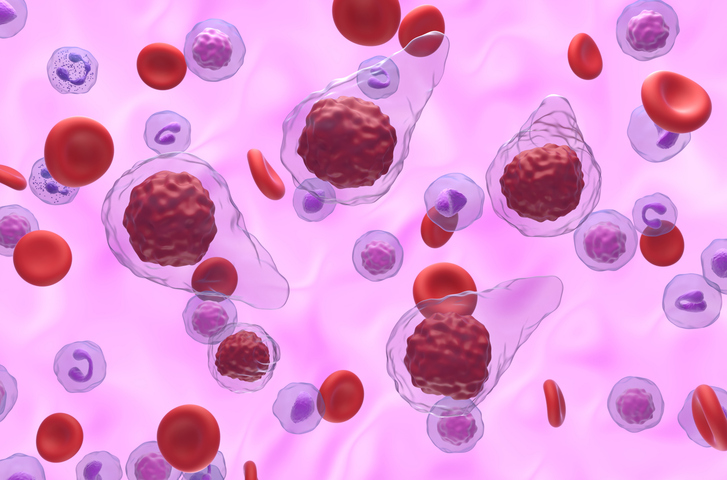
Treatment with selinexor reduced hepcidin and pro-inflammatory cytokines in patients with myelofibrosis (MF), according to a study presented at the Society of Hematologic Oncology 2024 Annual Meeting in Houston, Texas.
The study, led by Srinivas Tantravahi, MBBS, of Huntsman Cancer Institute in Salt Lake City, Utah, investigated the clinical activity of oral selinexor in patients with MF who were refractory or intolerant to ruxolitinib. The primary endpoint was the rate of ≥35% spleen volume reduction (SVR) at 24 weeks.
Seventeen patients (median age, 66 years) received selinexor at a starting dose of 80 mg, 60 mg, or 40 mg once a week. All patients had either JAK2, CALR, or MPL mutations and either low, intermediate-1, or intermediate-2 disease as assessed by the Dynamic International Prognostic Scoring System.
At 24 weeks, three of 10 patients (30%) reached ≥35% SVR and five of 10 patients (70%) reached ≥25% SVR. From baseline to week 12, a median reduction in cytokine levels occurred for 39 of 48 detectable cytokines, which continued to the end of treatment. Selinexor led to a median 20% reduction in hepcidin, 34% in interleukin (IL)-15, 29% in IL-12p40, and 36% in IL-12p70 from baseline to week 12.
At the time of publication, three patients remained on selinexor. Reasons for discontinuation included death (n=1), leukemic transformation (n=1), spleen progression (n=1), alternative treatment (n=3), consent withdrawal (n=3), and toxicities (n=5). The most common treatment-related adverse events were nausea, fatigue, diarrhea, and weight loss.
“Long-term administration of selinexor was feasible, with dose reduction without loss of spleen response, in MF patients,” the researchers concluded. “Selinexor treatment led to a reduction in hepcidin and pro-inflammatory cytokines in MF.”
Reference
Tantravahi S, Patel A, Yap J, et al. Long-term response to selinexor in patients with myelofibrosis and refractory or intolerant to jak inhibitors: follow-up results of a single-center, phase II, investigator-initiated trial (IIT). Abstract #MPN-652. Presented at the Society of Hematologic Oncology 2024 Annual Meeting; September 4-7, 2024; Houston, Texas.






 © 2025 Mashup Media, LLC, a Formedics Property. All Rights Reserved.
© 2025 Mashup Media, LLC, a Formedics Property. All Rights Reserved.